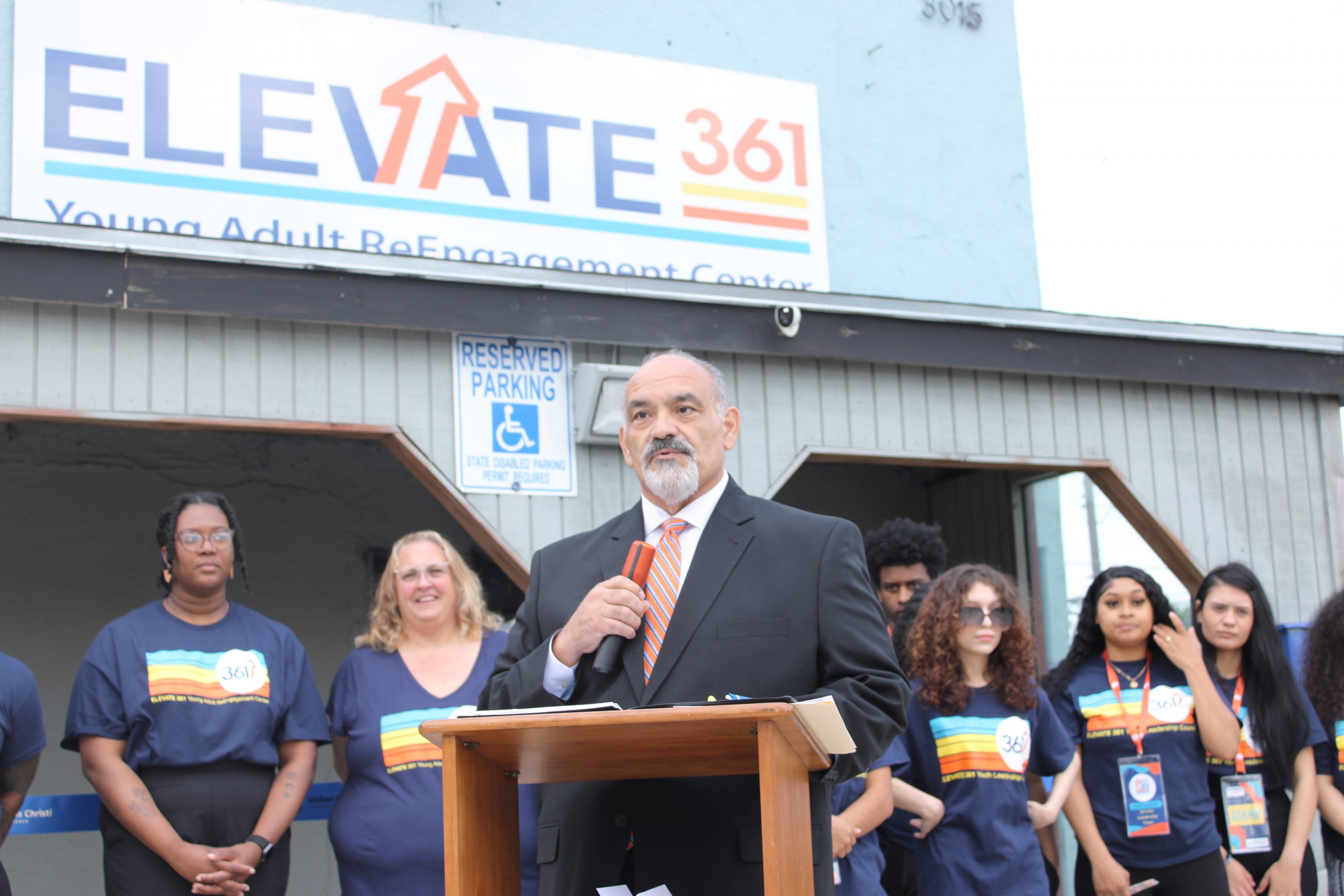
Congressman Joaquin Castro, D-San Antonio, met with local veterans and elected officials Feb. 23 to raise awareness and discuss the unmet needs of veterans suffering from or who have died from exposure to burn pits in Iraq and Afghanistan.
“During the Iraq and Afghanistan wars, there were about 250 open-air burn pits that were used to destroy everything that needed to be discarded,” Castro said at the Burn Pits Town Hall in downtown Corpus Christi. “Our service members were not too far away and were inhaling these fumes.”
Service members who were in close proximity of the noxious fumes experienced serious medical conditions.
In 2007, Texas State Trooper and Army Reserve Officer Le Roy Torres, of Robstown, was deployed to Balad and was exposed to one of the largest landfills in Iraq.
“They would burn all types of waste from plastic bottles to tires and body parts from the hospital,” Torres said.
Upon returning home, he was diagnosed with a lung condition known as constrictive bronchiolitis and because of his debilitating symptoms he lost his law enforcement job of 14 years. And, because the Department of Veteran Affairs does not acknowledge service-related illnesses caused by burn pits, the VA did not give him the proper medical care he needed.
He and his wife, Rosie, created Burn Pits 360, a nonprofit organization that champions for service-related toxic exposure benefits and compensation.
“Those of you that served during the Vietnam era know that it took our government way too long to acknowledge the devastating impact of Agent Orange,” Castro said. “We want to make sure that the same thing does not happen to this generation of Afghanistan and Iraq war veterans.”
Castro has introduced two related pieces of legislation into Congress. House Resolution 1001, The Family Member Access to Burn Pit Registry Act, and House Resolution 1005, The Burn Pit Veterans Revision Act, have both been referred to the House Veterans’ Affairs Committee for review.
Since June 2014, the VA has created and monitored the Airborne Hazards and Open Burn Pit Registry that allows veterans and service members to document their toxic exposure and report health concerns. Over 164,775 personnel have submitted their registry questionnaire for assessment.
The Institute of Medicine reported limited evidence with a link between “exposure to combustion products and reduced lung function” after preparing its report that included raw air-sampling data collected in 2007 and 2009.
For more information about burn pits and to read about the veterans who have died from their toxic exposure, visit www.burnpits360.org. To learn more about the resolutions Castro has sponsored, visit www.congress.gov. If you served in the military during Gulf War operations in Iraq and Afghanistan and have been exposed to burn pit fumes, fill out the Airborne Hazards and Open Burn Pit Registry questionnaire at www.veteran.mobilehealth.va.gov.




